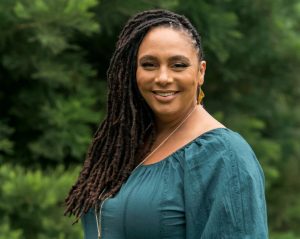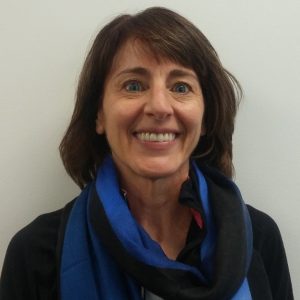Reimagining Pay Equity in Youth-serving Nonprofits, our first Thriving Leaders event of the year, is coming up on April 22, 2022. If you, like other members of our community, are seeking to…
- Explore strategies that could increase your organization’s revenue to support thriving wages and compensation
- Gain an understanding of equitable pay for nonprofits, and how to communicate to funders the importance of equitable pay;
- Gain knowledge you can bring back to your team to initiate or inspire change;
- Identify new practices for how salaries are determined;
- Learn system-wide change strategies regarding pay equity…
…then join us for this collective learning forum, where our presenters, facilitators, and you will have the chance to share what progress we’ve made as a sector, what bold and innovative approaches are being taken locally to address this persistent challenge, and identify a tool or action to apply within your work.
Register today and check out the schedule below for more details.
OPENING PLENARY: Community Building & Keynote Panel
(9:30-10:45 a.m. PST)
Our keynote panelists will include:
- Silvia Giannattasio-Lugo, Development Director, Young Women Empowered
- Lindsay Hill, Co-CEO, Threshold Philanthropy
- Cathy Habib, Board Chair, Eastside Pathways
- Janice Deguchi, Executive Director, Neighborhood House
Check-in and Community Conversations
(11:00 a.m.-12:30 p.m. PST)
Choose from one of the following 60-minute conversations facilitated by local leaders.
Breakout Room A: Application of the Nonprofit Wage & Benefits Survey Report Towards Equitable Compensation with Nancy Long, Executive Director, and Carol McCaulley, Human Resources Consultant, 501 Commons
Breakout Room B: Advocating for Government Contracts that cover the full cost of services with Karen Brady, CEO & Executive Director, Ryther, and Anthony Austin, Executive Director, Southeast Youth & Family Services
Breakout Room C: Philanthropy’s Role in Supporting Thriving Wages with Juliet Le, Program Officer, Satterberg Foundation
Breakout Room D: Changing Policy to Ensure the Child Care sector can thrive with Angelia Hicks-Maxie, CEO, Tiny Tots Development Center and co-lead of the Greater Seattle Business of Childcare Coalition and Monica Liang-Aguirre, Director of Early Learning, Seattle Department of Education & Early Learning
Learn more about our Keynote Panelists below.
Silvia Giannattasio-Lugo, Development Director, Young Women Empowered
Silvia has developed an extensive background in relationship management and strategic communications. As a first generation American, Silvia is passionate about working with communities through grassroot engagement to organize for equality. She received her undergraduate degree in Social Science from the University of Washington and a master’s degree in Global Communications from the American University of Paris. She has worked in the non-profit, government and private sector creating outreach, communications and social media plans.
Lindsay Hill, CEO, Threshold Philanthropy
Lindsay Hill is the Co-CEO of Threshold Philanthropy and an educator, speaker, doula, and mother. In everything that she does, she brings a deep sense of responsibility to support as much repair, transformation, and healing as she can—a responsibility that first led her to a career in the education sector. Lindsay co-founded Threshold to redefine philanthropy as reparative action and investment, to support Black women in a liberatory and healing culture, and to partner with and resource the movements, communities, leaders, healers, artists, and designers who are visioning and building a more just and liberated world. In her role as Co-CEO she develops and refines the organizational vision, leads grantmaking and investment work, supports the development of internal systems and structures, and leads external communications and narrative work. Threshold is showing what philanthropy can accomplish when following the leadership of Black women and Lindsay is honored to contribute to the normalization of centering Black women’s visions across the sector.
Cathy Habib, Board Chair, Eastside Pathways
Cathy and her husband, David, started a family foundation after careers in software. They have been active members and participants in Social Venture Partners Seattle and Progress Alliance of Washington. Cathy became interested in equitable access to educational opportunities while she was volunteering in her kids’ public schools. After serving on a Education grant committee through Social Venture Partners, Cathy was inspired to take a more active role in local nonprofits. Cathy served nine years on the Bellevue Schools Foundation and chaired the Grantmaking committee. Cathy has been actively volunteering for the past ten years with Eastside Pathways, the backbone for the Eastside Pathways partnership, a cradle-to-career collective action organization in East King County with over 80 partners. She is in her third year as Board Chair of Eastside Pathways.
Janice Deguchi, Executive Director, Neighborhood House
Janice Deguchi has served as the Executive Director of Neighborhood House since September 2019. Janice is a Seattle native and has worked for over 25 years helping people gain access to vocational training, early learning, senior care, and youth mentorship. She is a tireless advocate for early learning and in 2013, was selected as a Parent Map Superhero for her advocacy.
Janice currently serves on the boards of 501 Commons, Washington State Community Action Partnership, and is co-chair of the Seattle Human Services Coalition Wage Equity Leadership Committee. Founded in 1906, Neighborhood House is one of the oldest social service agencies in the Seattle region. Neighborhood House serves over 15,000 children, families, and adults, with a focus on low-income community members, public housing residents, immigrants, and refugees. Neighborhood House’s major program areas include: early learning, youth development, employment and adult education, housing stability, aging and disability services, and community health.






